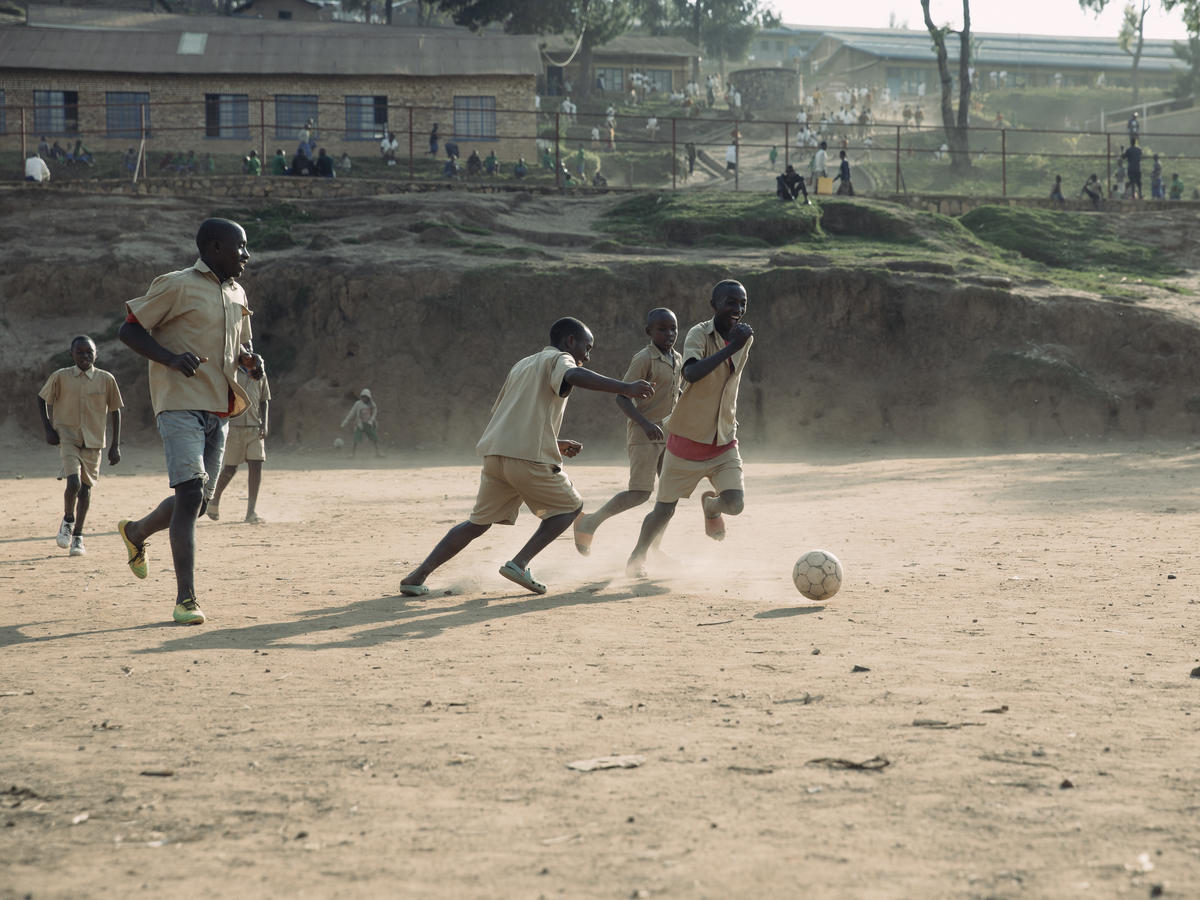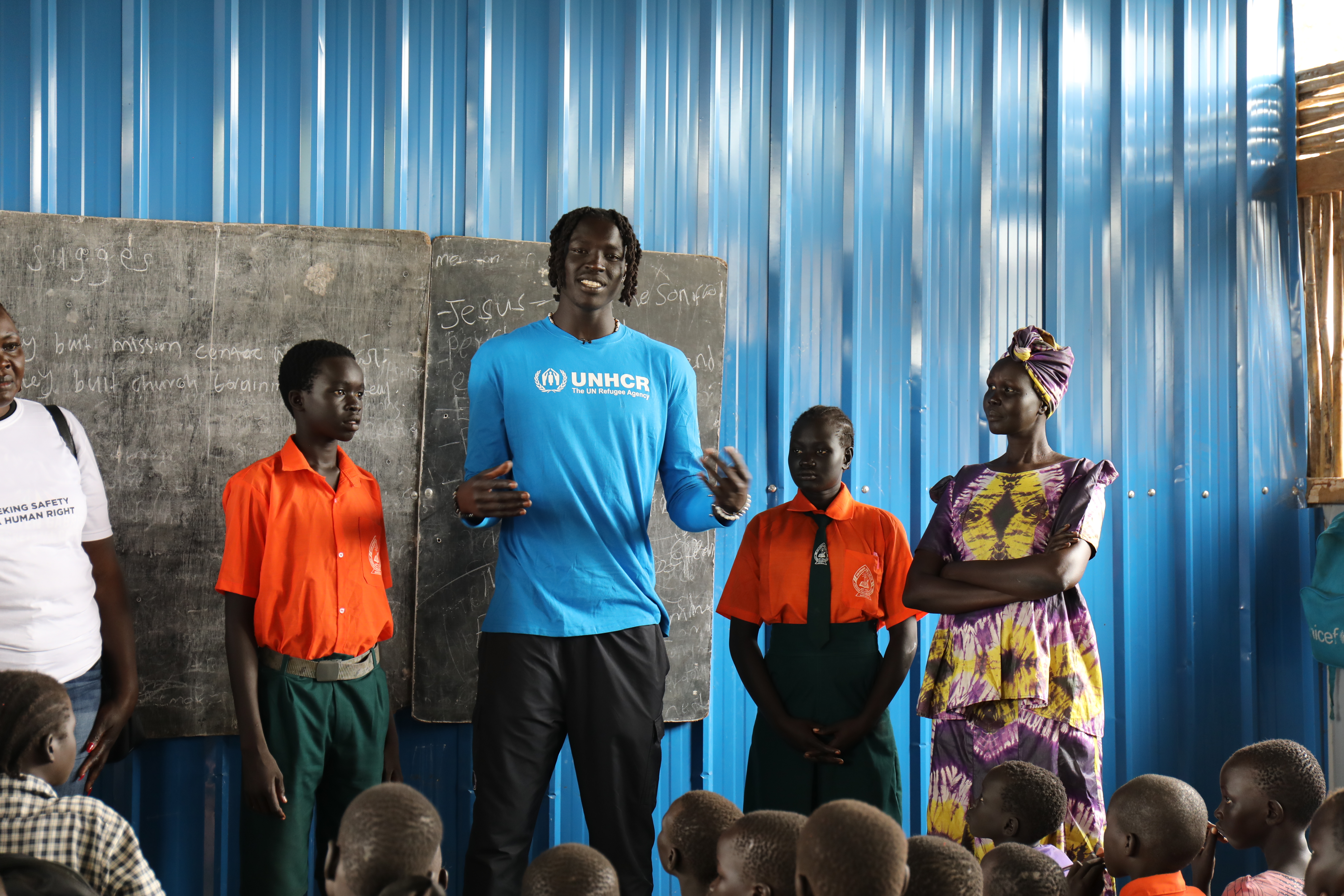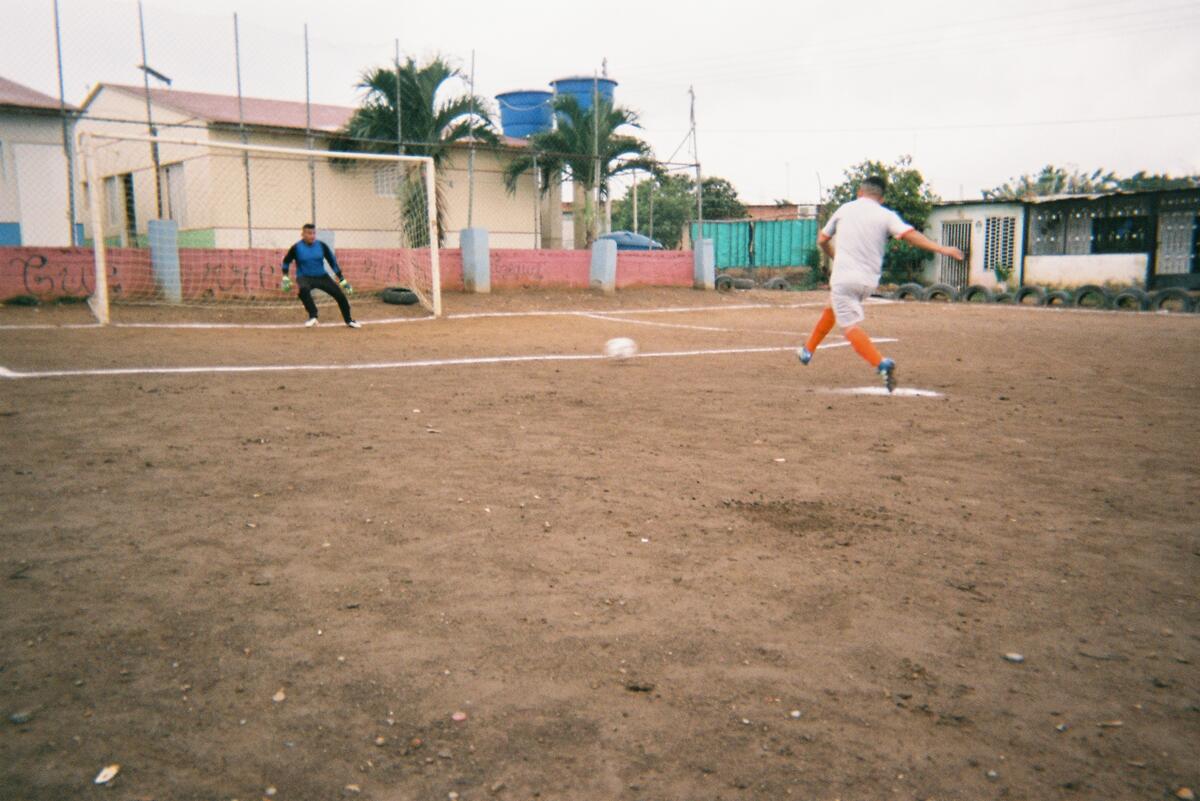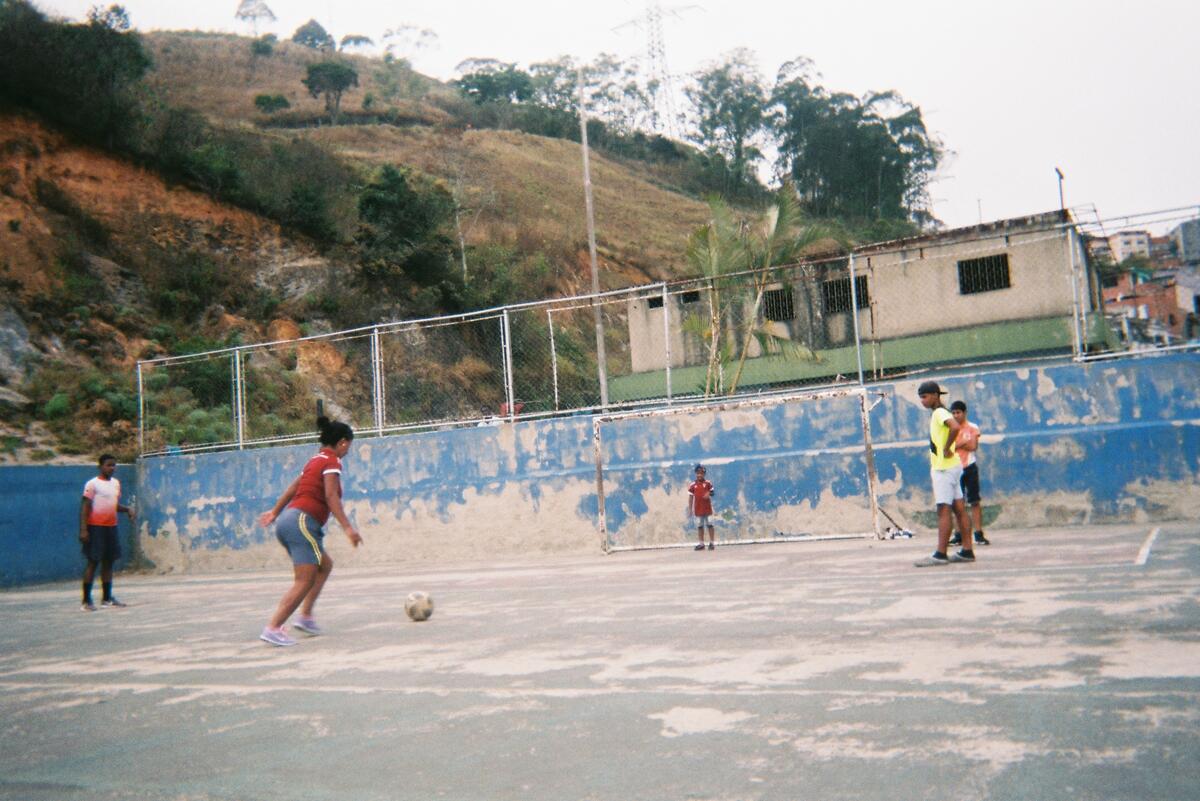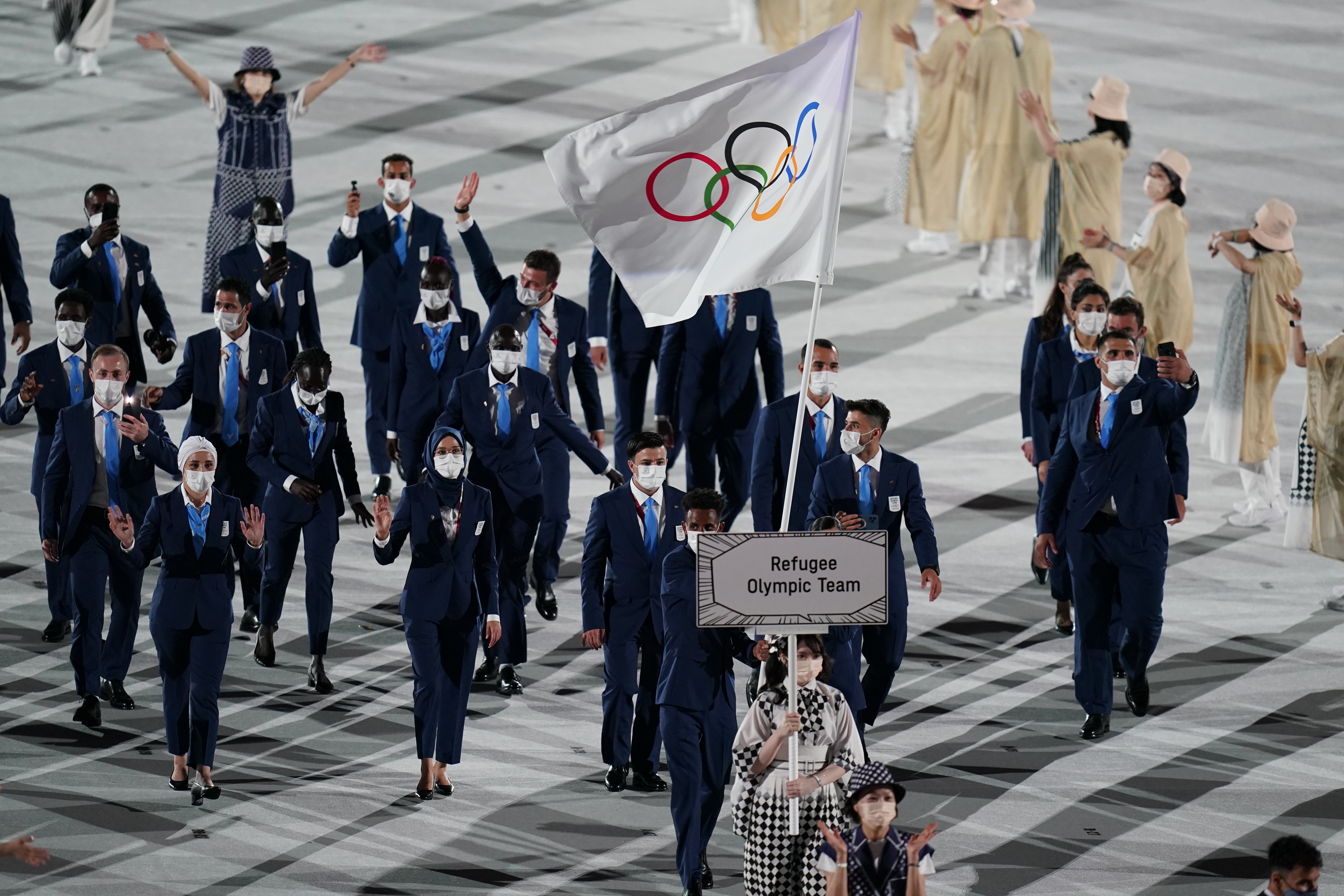Feature: A sporting chance for Kakuma's refugees
Feature: A sporting chance for Kakuma's refugees

KAKUMA, Kenya (UNHCR) - Hussein Hassan Bura is not your typical runaway success. In the early 1990s, the Ethiopian fled his strife-torn homeland with nothing to his name. A decade later, he is still running, albeit for a different reason - the 24-year-old is now a marathon runner who has gotten back on his feet through sporting excellence.
When Hussein first arrived at Kakuma camp in Kenya, he had no identity card, no family, no education and no hope. Encouraged by sports co-ordinators at the camp, he started training for the marathon and slowly regained his confidence. Today, he is a respected figure at Kakuma who dreams of attending university so that he can improve his parents' lives back in Eritrea.
"This is what sports is all about in a refugee camp," said Anna - Maria Rugarli, Corporate Responsibility Specialist at Nike (Europe, Middle East & Africa) who visited Kakuma camp recently. "Hussein is a refugee, but first of all he is a marathon runner who doesn't have enough to eat or wear. But he undergoes rigorous daily training to win a marathon and to win his chance to leave Kakuma for a better life."

Hussein's sporting spirit came to public attention when a Nike crew went to Kakuma camp in late January to make a documentary on the company's donation of sports clothing and equipment to the UN refugee agency. Under this initiative, refugees in Kenya's Kakuma and Dadaab camps were presented with T-shirts, shorts, shoes, socks and balls.
Receiving Nike's contribution, Kofi Mabla, who heads operations at Kakuma, said, "Sports activities have improved contacts between refugees of different ethnic groups and with the local community here over the years. The Nike donation gives these teams self-esteem and great pride to play as champions."
Hannah Jones, Nike's Director of Corporate Responsibility for Europe, Middle East and Africa, added, "The development of UNHCR sports programmes in refugee camps is a shining example, in our eyes, of the role that sports can play in resolving conflict, and in building communities. We're proud to be able to partner with UNHCR in this programme."
Kakuma has one of the most developed sports programmes in UNHCR camps worldwide. The programme started when the camp was set up in 1992. Back then, the camp's population was very young, with a large number of former child soldiers from Sudan, better known as the "Lost Boys". As other nationalities and ethnic groups started arriving, it was crucial to ensure positive outlets for potential conflict and to overcome idleness.
Sports has also been used to foster good relations between refugees and locals living in this remote area of Kenya. Natural resources here are scarce and without the mediating influence of sports, tensions can easily arise.
Today, the programme runs in 11 zones in Kakuma, thanks to the dedication of a small number of staff from the Lutheran World Federation, Right to Play and most importantly the refugee community itself. The refugees form zonal sports councils and appoint a zonal supervisor. These councils decide on the organisation of activities, team recruitment and schedules.
Matches, which involve both the refugees and locals, are played under a league system in which teams earn points towards a championship match. The teams also have the opportunity to chalk up points through volunteer community services such as building shelter for elderly and vulnerable persons, tree planting and garbage collection.
The games not only build friendship between the players, but are also an excellent opportunity to convey important messages to spectators and the broader population. In this way, the sports programme has helped raise awareness of HIV/AIDS and sexually transmitted diseases, as well as the importance of peaceful co-existence and of involving girls in sports.
The sports programme also seeks to teach refugee players valuable skills. UNHCR's non-governmental organisation partners organise workshops to train refugees as referees and coaches - useful skills when they return home or are resettled in a new country.
Many of the "Lost Boys" who were resettled in the United States have written back to share their experiences playing ball in their new communities. A few very lucky and talented refugees have even found spots in well-known training centres, but these are a minority as most of them cannot afford to pay for such coaching.
Playing involves a lot of hard work, as the Nike crew saw during their recent trip to Kakuma. At the camp, they witnessed a netball game, a soccer match, a volleyball game, and wheelchair basketball played by Sudanese landmine victims. They also saw how refugee teachers worked to combine sports, fun and learning for kindergarten kids under an innovative programme called "The Five Rings". Spearheaded by Right to Play, this programme uses sports as a tool for holistic development - integrating health, mind, body, spirit and peace in UNHCR camps.
In addition to the sports programmes, the Nike staff also observed some refugee projects involving adult education, income - generation and environmental protection in Kakuma camp.
Much more remains to be done to broaden these programmes and to meet even the basic needs of refugees in Kakuma. With a refugee population of some 80,000 - 75 percent of whom are children and young adults - the UN refugee agency and its partners face many challenges here. Sports, empowerment and self-reliance measures form an essential part of the solution, but like Hussein's long-distance dream, it is a long-term process that will require focus, determination and endurance.
By Linda Merieau and Emmanuel Nyabera




